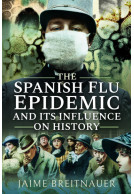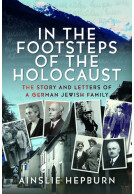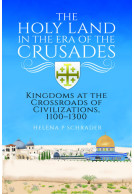The Royal Bastards of Twelfth Century England (ePub)
Power and Blood
Imprint: Pen & Sword History
File Size: 27.7 MB (.epub)
Pages: 224
ISBN: 9781399067362
Published: 31st May 2023
| Other formats available - Buy the Hardback and get the eBook for £1.99! | Price |
|---|---|
| The Royal Bastards of Twelfth… Hardback Add to Basket | £22.00 |
The many storied monarchs of twelfth century England lived, fought, loved, and died surrounded by their illegitimate relatives. While their many contributions have too often been overlooked, these illegitimate sons, daughters and siblings occupied crucial positions within the edifice of royal authority, serving their legitimate relatives as proxies and lieutenants. In addition to occupying roles and offices at the centre of royal administration, Anglo-Norman and Angevin royal bastards, exiled to the fringes of family identity by a twist of fate, provided the kings of England with military and political support from amidst the aristocratic affinities into which they were embedded. Rather than merely inert pieces on the dynastic game board or passive conduits of royal association, these men and women were engaged participants in contemporary politics, proactively cultivating and shaping the thrones’ relationship with its principal subjects. This book, the first full length study dedicated to the subject, examines the seminal conflicts and changing shape of the royal dynasty during a period of turbulent and formative development in the nature and institutions royal government through the rarely before accessed perspective of the reigning monarchs’ illegitimate family members and deputies. More than that this study aims, as far as possible, to illuminate and bring to life the lives, triumphs and tragedies of these fascinating half-forgotten personages. The victims of a rapid and profound demographic and social change which drastically recontextualised their position with royal family identity and aristocratic society, the bastards of the English royal family found new methods to survive and thrive.
An important book on the role of illegitimate children in 12th century England. The book is divided into according to the reigns of every major English King of the century. So, the bastards of Henry I and Henry II are all in here. The famous ones and the ones not so well known.
NetGalley, Joanna Arman
It recounts how their position and status evolved during the course of the century (and later). Even if they could not inherit the throne, bastard children could become Chancellors, Commanders, Great Lords, and play keys roles in political events.
As featured by Ancient Origins: read James Turner's blog post here.
Ancient Origins
As featured in
AroundTown (Barnsley)
Twelfth century England is a fascinating period of history, in part due to the tensions between the official statuses and practical roles of many people, including bastards. Although technically disbarred from inheritance as they were the product of illicit unions, during this period, Dr Turner shows how bastards could come to wield significant power. This is a very thorough and informative volume on the history of royal bastardy in 12th century England.
NetGalley, Jessica Carey-Bunning
An interesting historical book about the other royals. An interesting read for those wanting to know more about the royals of old England.
NetGalley, Aubrey Kerr
Rating: 5 out of 5 stars
NetGalley, Lily Amidon
In The Royal Bastards of Twelfth Century England, James Turner explores the lives of the illegitimate children of Henry I of England, Count Geoffrey of Anjou, and Henry II of England and the roles that these illegitimate children played and fulfilled during their fathers’ reigns. Turner goes beyond the more famous ones like Reginald of Cornwall and Robert of Gloucester and explores the idea of illegitimacy in the context of the twelfth century. Turner also examines the positions and allegiances of kings’ illegitimate children during periods such as the Anarchy or the revolts of Henry II’s legitimate sons against their father in this first comprehensive study on the topic. Turner’s familiarity with the topic, coupled with his historical expertise, makes this text reputable and a fascinating read. Turner’s prose and level of detail bring these historical figures to life, and he does acknowledge where (and perhaps why) the records fall short and leave out gaps in the story. Turner’s knowledge of twelfth-century English politics and the connection with the concept of illegitimacy provides a fascinating perspective on why some illegitimate children of kings played a bigger role than their less well-known half siblings. Overall, the book is a fascinating read full of historical information and a fresh perspective on royal bastards from a tumultuous period in English history.
Rating: 5 out of 5 stars
NetGalley, Matal Baker
When I discovered that a book on the subject of illegitimate royal children was going to be published—with a title that sounds like a BBC documentary series, no less—I could only dare to hope that I would be able to read it. After having spent some time reading this book, I consider myself lucky to be able to review it.
When I pick up a book written by an academic, there are certain things that I expect: solid academic writing, citations in the form of footnotes or endnotes, a good index, and a comprehensive bibliography. And when I know that their monograph is published by a non-university press, I also expect the writer to ensure that the writing is friendly to the general public (i.e., jargon free ). Being trained in a subject other than British history, as a self-acknowledged “general public reader” I can say that Turner successfully met all of the above requirements. That being said, it should be acknowledged that this book will likely appeal more to educated readers.
Turner arranged this book into 6 different chapters, focusing primarily on the reigns of Henry I and Henry II and their numerous illegitimate offspring during the twelfth century. That era in the United Kingdom has always fascinated me, as has the subject of bastardy.
The author gives readers a tour of English bastardy during during the reigns of Henry I and Henry II when illegitimacy was still being codified as a legal status. During this time, however, the king’s illegitimate children did not inherit royal status (e.g., the right to inherit the crown), but their social connections to the king could provide them with lucrative positions in both the secular world and in the churches.
What I really like about Turner’s book is that he evaluated the parent-child relationships objectively. For example, instead of portraying illegitimate offspring as powerless, Turner constantly reminds readers that these relationships were dually beneficial (Tucker 2023: 36, 65, 82, 173). Both kings relied on these ‘unofficial’ children to shore up support not just for themselves, but for their legitimate children as well. In return, the illegitimate children were often provided with advantageous social positions (dukedoms, earldoms, etc.), money, and marriages. However, the author clarifies that this give-and-take didn’t diminish the illegitimate children’s agencies and even provides examples, such as Henry II’s son, William Longespée (Tucker 2023: 162-175).
My favorite part about Tucker’s book is that he spent a great deal of time discussing the social relationships that many of these children—both sons and daughters—had with their parent (e.g., Geoffrey and Henry II).
When many people thing of kings in former ages, an image of an all-powerful ruler who answers to no one will often materialize. But even in the twelfth century, as Tucker points out, kings were engaged in a power struggle with the church. Tucker barely discusses Thomas Becket’s murder in the book, and this was fine for me. The power struggles between Henry II and Becket have already been, and will no doubt continue to be, discussed in detail elsewhere. But what Tucker hones in on is how this ongoing friction with the church led kings to use their leverage to provide clergy positions for their illegitimate children. In doing so, they not only provided those children with the financial means to support themselves, but also created—or attempted to create—a less hostile foe for the royal family by, “…strengthening and advancing royal dynastic interest…” (Tucker 2023: 64).
As if this book couldn’t get any better, the author also included numerous black and white images. Overall, this was an excellent read and I highly recommend this book!
A interesting look into seldom mentioned people in a transitional time, these people are seldom mentioned but played a surprisingly big part in the politics of the time.
NetGalley, Heather Bennett
Rating: 5 out of 5 stars
NetGalley, tracy shephard
This is a fascinating read and I was enthralled by how 'the other half live' . Historical books are probably my favourite genre especially when it is as well researched and factual as this. I learned quite a lot and found my googling many of the royal houses mentioned in this read.
It is brilliant and I loved it.
Rating: 5 out of 5 stars
NetGalley, Heather Michael
I love anything to do with history and this time period. This was a great due to I have not heard of someone of these cases. Highly recommend.
This is a book well worth reading by anyone interested in 12th century Anglo-Norman history. A little knowledge of the period is required to get the most out of it, but specialist knowledge is not required.
NetGalley, Michael Cayley
About Dr James Turner
Dr James Turner attended the University of Glasgow before undertaking his doctoral studies at Durham University. Deeply afraid of numbers and palaeography, his main research interests surround medieval aristocratic culture and identity as well as the idea of a global and interconnected Middle Ages. He lives and works near a beach in South Ayrshire and is a regular contributor to Medivalist.net.
















